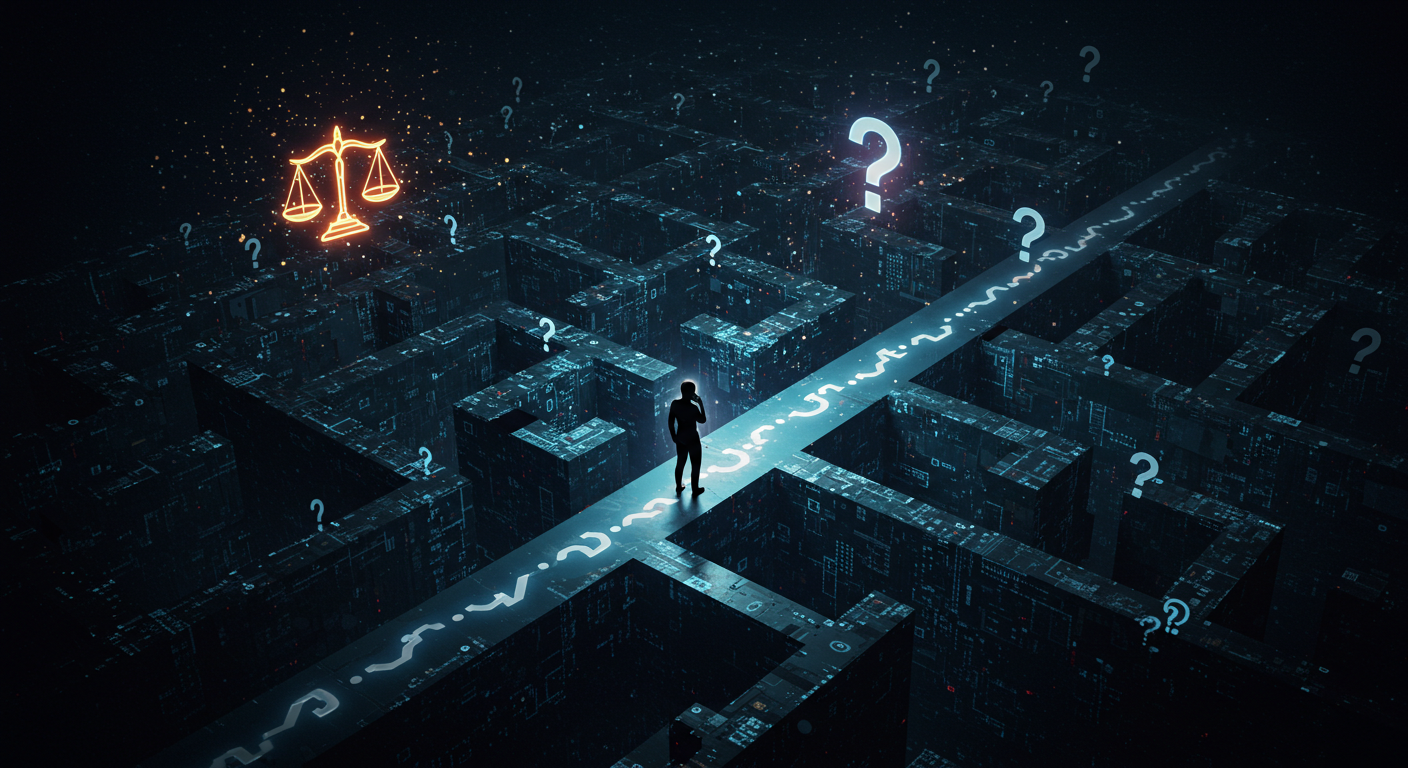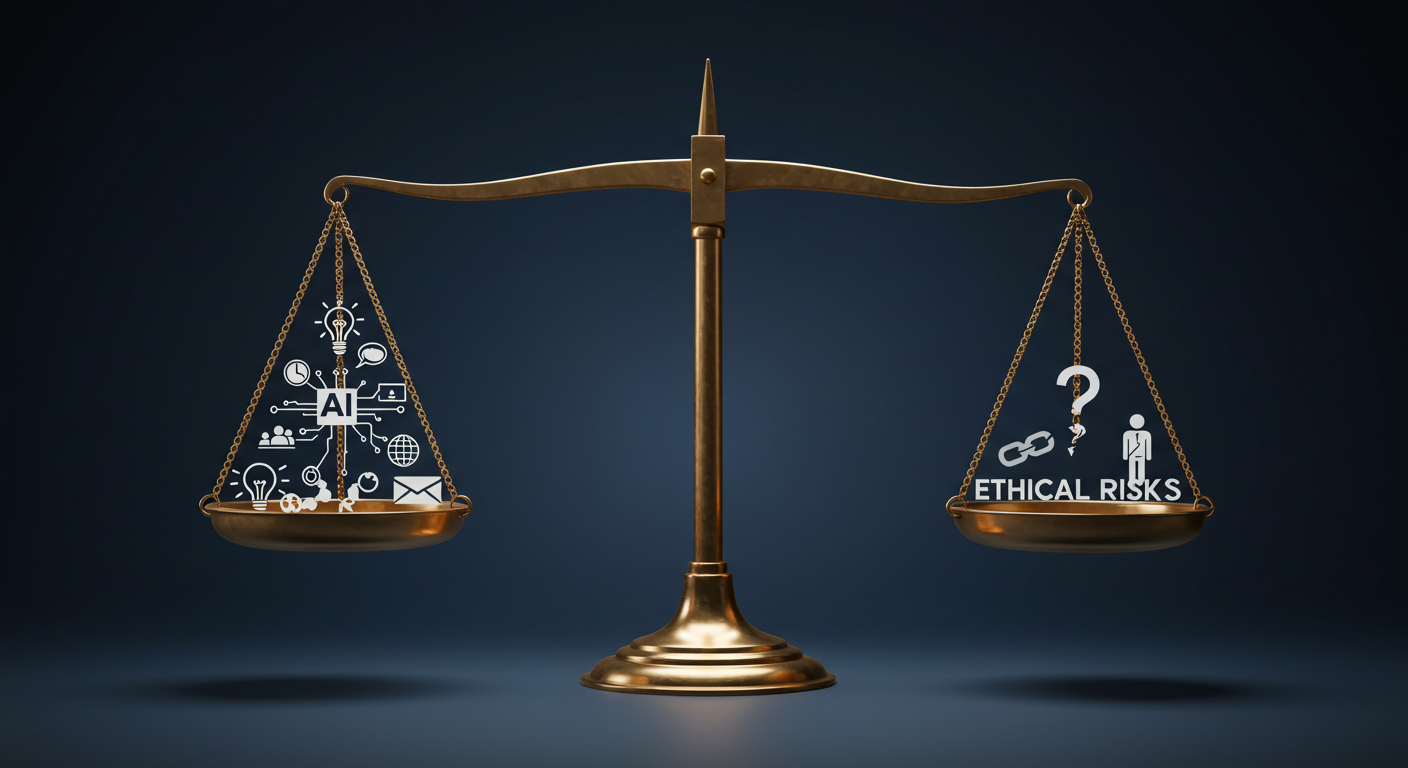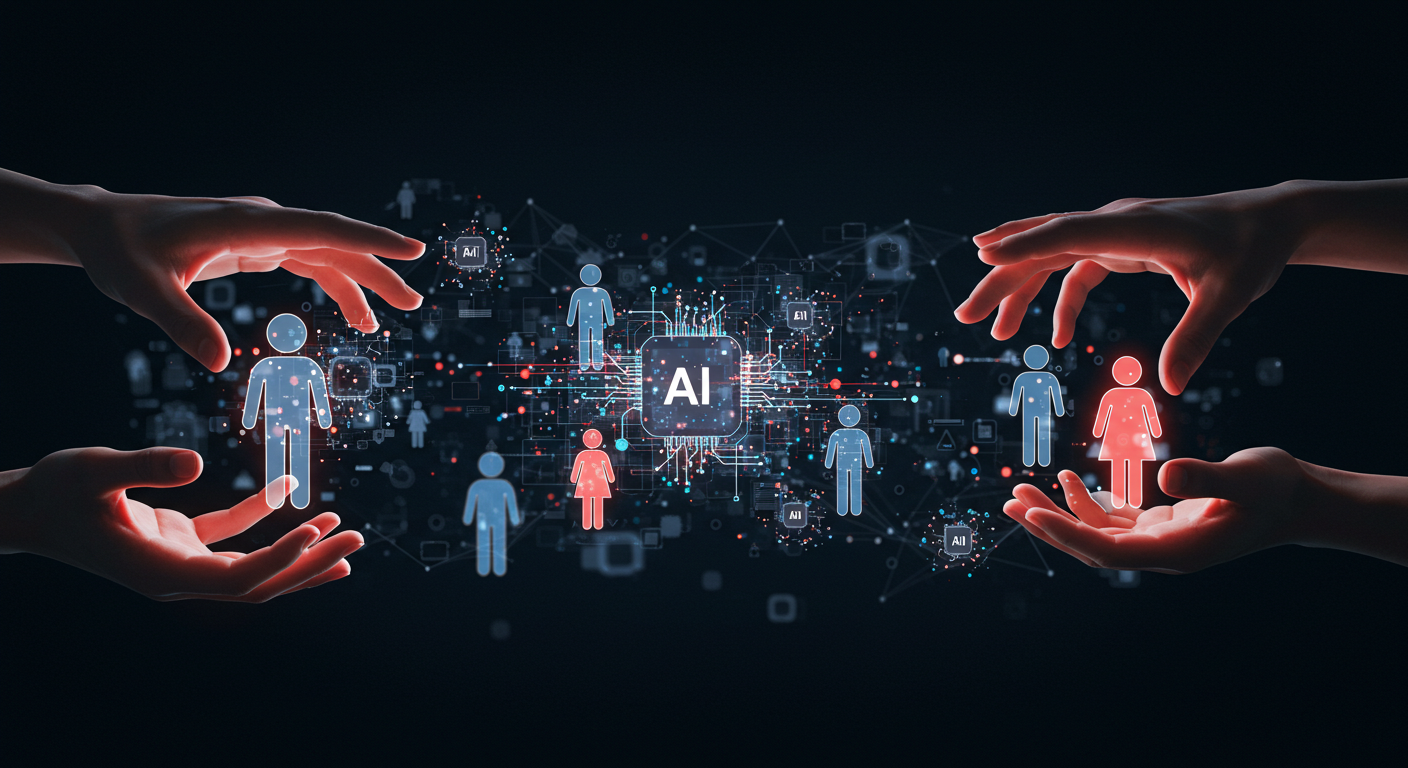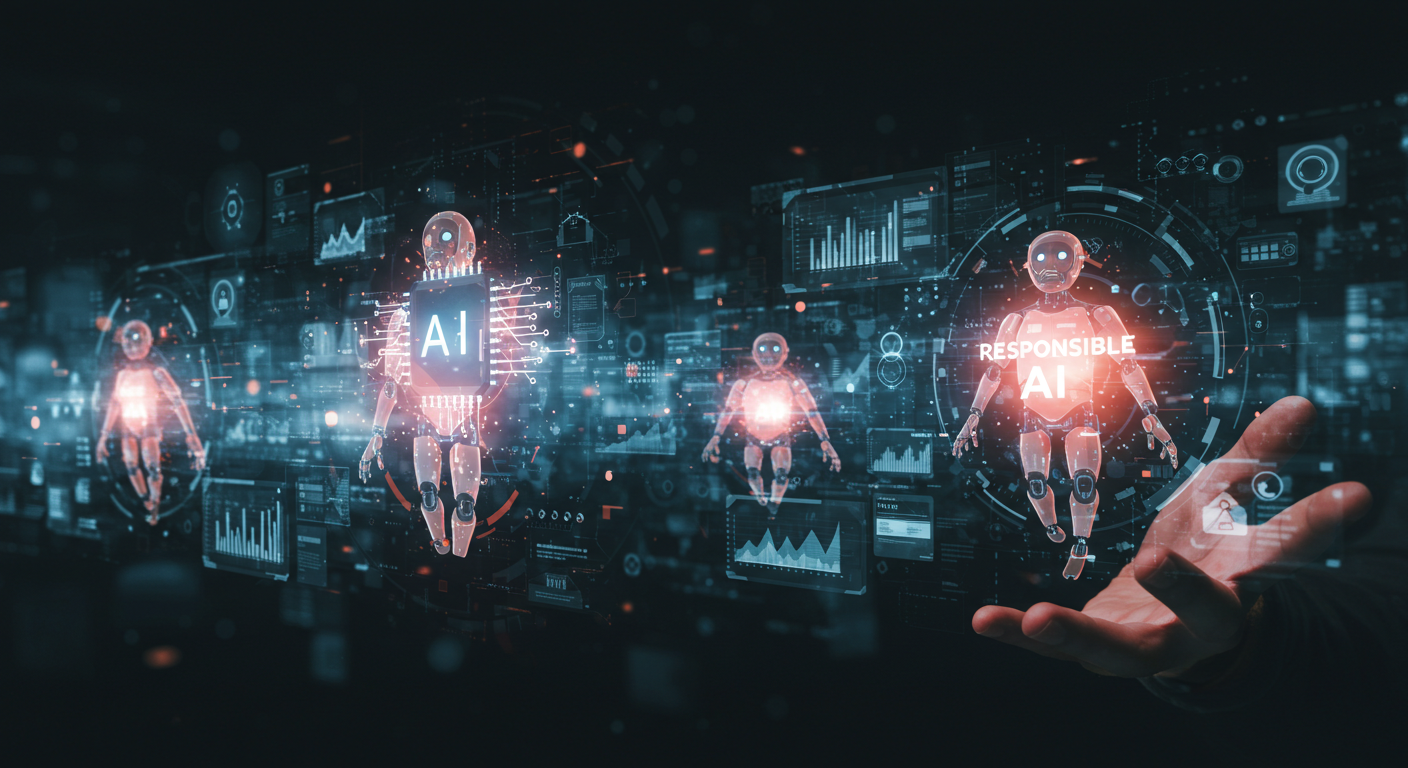
Wrestling with Shadows: My Ongoing Reflections on AI Ethics
Wrestling with Shadows: My Ongoing Reflections on AI Ethics
As someone deeply immersed in the world of Artificial Intelligence, constantly exploring new tools, marveling at its capabilities, and sharing my journey here on Domdhi.com, there’s a parallel track of thought that runs alongside all the excitement: the profound ethical considerations of AI. It’s impossible, I think, to be truly engaged with AI without also wrestling with the complex web of moral, societal, and philosophical questions it unfurls. This isn’t a post with definitive answers – far from it. Instead, it’s a more personal reflection, an attempt to articulate the questions I ponder and the principles I try to navigate by as both an enthusiast and a user.
The “unique” tag for this post feels apt because while many discuss AI ethics from academic or policy standpoints, I’m approaching this from the perspective of an individual on their own learning journey, trying to reconcile the dazzling potential of AI with its inherent challenges.
The Dual Nature: Power and Peril
Every time I witness an AI generate a breathtaking piece of art from a simple prompt, translate languages with uncanny accuracy, or help debug complex code, I feel a surge of optimism. The power to solve problems, to augment human creativity, and to unlock new frontiers of knowledge is undeniably immense. This is the side of AI that fuels my passion and inspires much of what I share.
But with great power comes great responsibility – a cliché, perhaps, but one that rings truer than ever in the age of AI. The same technologies can be used to create convincing deepfakes, automate jobs without a social safety net, perpetuate and amplify biases, or even, in more speculative scenarios, lead to outcomes we can’t fully control. This duality is something I constantly keep in mind.
 (Imagine a stylized balance scale. One side, slightly higher, is labeled “AI Potential” with icons like a lightbulb, a helping hand, and a connected globe. The other side, “Ethical Risks,” has icons like a shadowy figure, a broken chain, and a question mark.)
(Imagine a stylized balance scale. One side, slightly higher, is labeled “AI Potential” with icons like a lightbulb, a helping hand, and a connected globe. The other side, “Ethical Risks,” has icons like a shadowy figure, a broken chain, and a question mark.)
Key Ethical Areas I Find Myself Pondering
My reflections often circle around a few core themes:
-
Bias and Fairness: This is a huge one for me. AI models learn from the data they’re fed. If that data reflects existing societal biases (around race, gender, age, etc.), the AI will not only learn these biases but can also amplify them in its decisions and outputs. How do we ensure that the AI tools we build and use are fair and equitable? How do we audit for bias and mitigate it effectively? As I explore different tools, I try to be mindful of potential biases in their outputs.
-
Transparency and Explainability (The “Black Box” Problem): Many advanced AI models, particularly deep learning networks, operate as “black boxes.” We can see the input and the output, but understanding how the AI arrived at a specific decision can be incredibly difficult. For critical applications (like medical diagnosis or loan approvals), this lack of transparency is a major concern. I believe there’s a growing need for “Explainable AI” (XAI) – methods that can shed light on the AI’s reasoning.
-
Accountability and Responsibility: If an AI system causes harm (e.g., a self-driving car accident, a discriminatory hiring algorithm), who is responsible? The programmers? The company that deployed it? The user? The AI itself (if it ever reaches a certain level of autonomy)? Establishing clear lines of accountability is a complex legal and ethical challenge.
-
Impact on Employment and Society: Automation driven by AI will undoubtedly transform the job market. While new jobs will be created, others will be displaced. How do we manage this transition to minimize societal disruption? What is the role of education and reskilling? These are broad questions that go beyond just the tech itself.
-
Privacy and Data Governance: AI thrives on data. How do we ensure that the vast amounts of personal data used to train and operate AI systems are collected and used responsibly, respecting individual privacy? The rise of generative AI that can mimic voices or create likenesses adds another layer to this concern.
-
The “Alignment Problem” (Long-Term Concern): Looking further ahead, as AI systems become more powerful and potentially more autonomous, ensuring that their goals remain aligned with human values becomes paramount. While this might seem like science fiction to some, it’s a serious area of research for many leading AI thinkers. It’s about building safeguards and ensuring that future AI development benefits humanity as a whole.
Navigating as an Individual: My Personal Approach
As a user and an explorer of AI, I don’t have the power to set global policy, but I do believe individual choices and awareness matter:
- Conscious Consumption: I try to be aware of the AI I’m using. Who made it? What are their stated ethical guidelines (if any)?
- Critical Evaluation: I don’t take AI outputs at face value, especially for information or creative work. I question, I verify, I cross-reference.
- Promoting Responsible Use: In my own work and on Domdhi.com, I aim to highlight not just the “wow” factor but also the importance of using AI thoughtfully and ethically. This includes being transparent about when AI has assisted in content creation.
- Continuous Learning: The field of AI ethics is constantly evolving. I make an effort to read articles, listen to discussions, and stay informed about new developments and perspectives.
- Supporting Ethical Development: Where possible, I’m inclined to support companies and open-source projects that demonstrate a clear commitment to ethical AI principles.
A Call for Ongoing Dialogue
The ethical landscape of AI is not something that can be “solved” once and for all. It requires ongoing dialogue, interdisciplinary collaboration (involving technologists, ethicists, policymakers, social scientists, and the public), and a willingness to adapt as the technology itself evolves.
My reflections on AI ethics are, therefore, a work in progress, much like AI itself. It’s a journey of learning, questioning, and striving to be a responsible participant in this transformative era. The shadows are there, but by acknowledging them and actively working to understand and mitigate the risks, I believe we can better harness the incredible light that AI also promises.
What ethical considerations in AI weigh most heavily on your mind? How do you navigate these complex issues in your own interaction with AI? I believe sharing these personal reflections is vital, so please feel free to add your voice to the conversation in the comments below.


